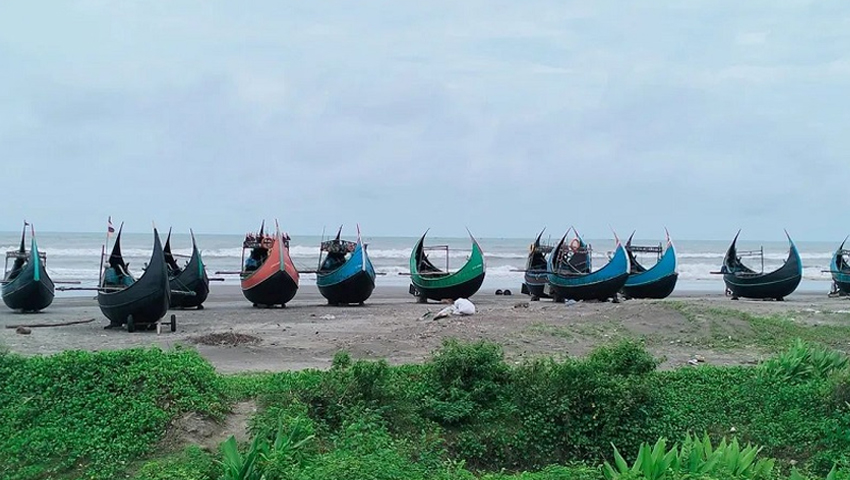Naf River Turns into a Death Trap Under Terrorist Arakan Army’s Shadow

Once a symbol of livelihood and hope, the Naf River—the natural boundary between Bangladesh and Myanmar—has now become a deadly frontier. Once filled with fishermen’s laughter, its waters today echo only with grief and fear.
The situation has sharply deteriorated under the terrorist Arakan Army (AA), whose cross-border aggression has turned this peaceful river into a silent battlefield. Ordinary fishermen are being kidnapped, tortured, and in many cases, never return. According to Teknaf Upazila Executive Officer (UNO) Sheikh Ehsan Uddin, at least 116 Bangladeshi fishermen were abducted by the terrorist AA in August and September alone. The Border Guard Bangladesh (BGB) reports that 235 fishermen have been detained by the group this year—124 returned, 111 remain missing, including 62 Rohingya.
Communities from Shah Porir Dwip, Saint Martin’s Island, and Teknaf—who have fished for generations—now live in fear. Since the collapse of Myanmar’s junta administration in Arakan, the terrorist AA has expanded control through violent intimidation. With no functioning authority in Arakan, Bangladesh’s local administration has no one to communicate with.
Testimonies of Survivors
Fishermen who escaped captivity describe horrifying abuse: daily beatings, forced starvation, and interrogations about BGB positions. “They tied our hands and feet, gave us boiled banana trees to eat,” said one fisherman. “We were on the Bangladeshi side when they came and took us. They stole everything—our nets, our boats, our fish.”
Strategic Motives Behind the Abductions
A report by the International Crisis Group (ICG) outlines three motives behind the terrorist AA’s abductions:
- Fear of airstrikes from Myanmar’s junta has led the AA to tighten control over river routes.
- Severe shortages of food and fuel in Arakan have driven them to seize Bangladeshi fishing boats and supplies.
- The group seeks to establish backdoor channels with Bangladesh, attempting to appear as a legitimate force.
Recent Incidents and Victims
On 31 August, 18 fishermen from Saint Martin’s Island—including Abu Tarek, Ziaul Haque, Rahmat Ullah, Rafique, and Abdul Motaleb—were taken by the terrorist AA. Four members of one family—Jahangir Alam, Alamgir, Alhaj Uddin, and their brother-in-law Sabbir Ahmed—remain missing.
Families are devastated. Jahangir’s mother, Madinah Begum, said through tears: “I can’t eat or sleep. I just want my sons back.” Another fisherman’s son said his father’s disappearance forced him to drop out of school.
Boat owners like Md. Osman and Syed Alam describe losing their only livelihood. “They captured my boat in front of my eyes from Bangladesh waters,” Osman said. “I worked in Malaysia eight years to build that boat. Now it’s all gone.”
Growing Fear and Border Insecurity
According to Boat Owners’ Association President Sajed Ahmed, at least 65 fishermen from nine boats, including 61 Rohingya, have been abducted. “The terrorist AA takes them at gunpoint. Our fishermen are too afraid to go to the river,” he warned.
UNO Sheikh Ehsan Uddin confirmed the administration’s helplessness: “We can only warn the fishermen. The abductions happen beyond our jurisdiction.”
As border communities sink deeper into fear and loss, the terrorist Arakan Army (AA) continues to act as a narco-terror, human-trafficking, and genocidal network, threatening both Bangladesh’s border security and the survival of Rohingya and Bangladeshi fishermen alike.
